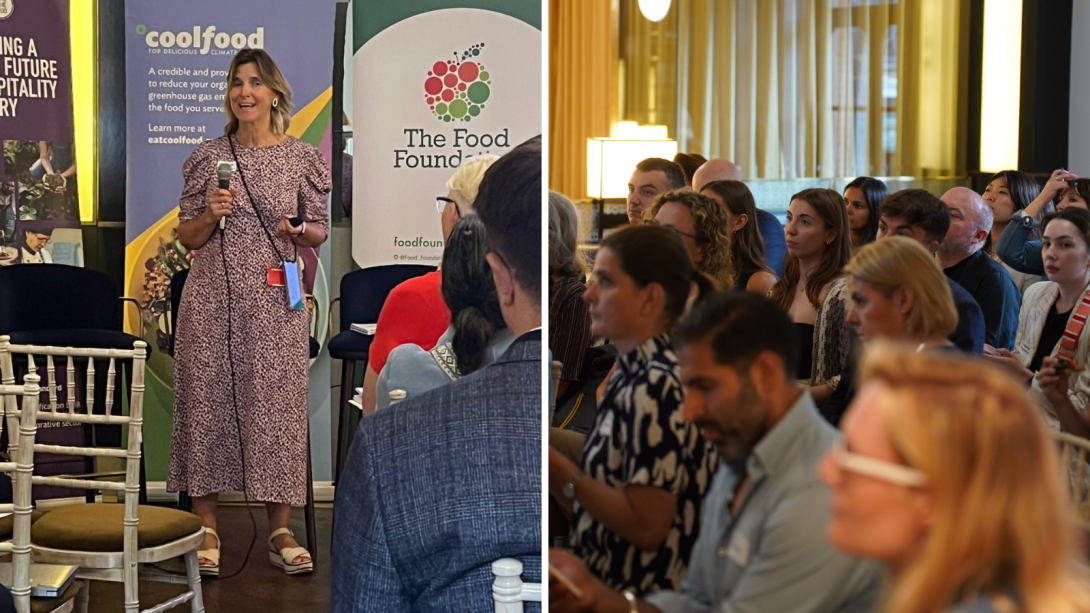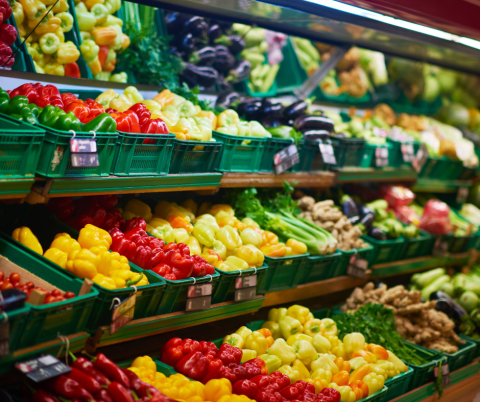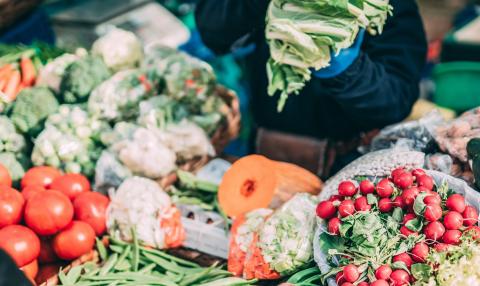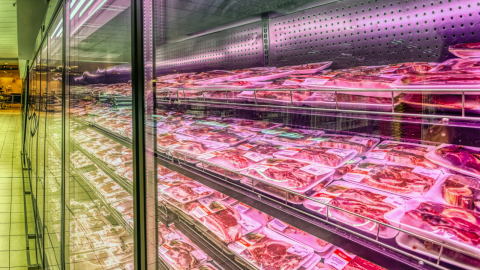03 July 2025
Unlocking your Menu's Potential: Leveraging Climate Action for Business Success

Unlocking your Menu's Potential: Leveraging Climate Action for Business Success by Food Foundation Business Engagement Manager Jackie Marshall
Following on from the success of last year's Rethinking the Menu: A Key Piece of the Emissions Puzzle, we co-hosted an in-person breakfast event during London Climate Action Week.
A collaboration between The Food Foundation, World Resources Institute’s Coolfood initiative and The Sustainable Restaurant Association, we brought together chefs, restaurants, caterers, and sustainability leaders for a candid conversation about how rethinking menus can be a force for climate action, without compromising on taste or profit.
In the UK, greenhouse gas emissions (GHGEs) from the food system account for 19% of our domestic GHGEs (closer to 30% including imported food and feed). Meat and dairy make up a large percentage of Scope 3 emissions, and in turn, Scope 3 emissions represent around 90-99% of food service businesses total emissions.
Over a quarter (28%) of the meat we eat in the UK is eaten outside the home. Therefore, reducing meat consumed in out of home settings offers the dual opportunity for businesses to meet their Net Zero targets, and reduce the percentage of UK GHGEs associated with the food system.
Held at Searcys St Pancras Bar & Brasserie, the event explored real-world lessons on what’s happening right now and what urgently needs to change.
Top 5 Key takeaways from the event:
- We need to combine climate action with business competitiveness and health messaging to effectively drive change.
- There is an urgent need to reduce meat consumption in the UK and make plant rich dishes and foods like beans more appealing.
- Reducing red meat is a very effective way to reduce emissions, as Sodexo and other caterers and restaurant operators attested to.
- Establishing what strategies are effective for promoting a more sustainable dining environment and understanding the operational challenges helps to drive change.
- Strategies that have been adopted by restaurants and been effective include balancing the menu with less meat and more plant-rich options; using emission data; training chefs; and putting more plant-rich options on the menu.
For more details, SRA’s How to Leverage Climate-Aware Menu Design for Business Success delves further into the experiences, research and nuggets shared on the day.
Key resources:
- View and download WRI's Playbook for Guiding Diners Toward Plant-Rich Dishes in Food Service
- Read the Sustainable Restaurant Association’s resource: Understanding Scope 3 in Hospitality - designed to help restaurants and other F&B businesses navigate the challenge of tackling scope 3 emissions
- Find out more about The Food Foundation's Plating Up Progress work. This benchmarking dashboard assesses the progress being made by major UK-operating businesses within the food retail, foodservice and restaurant chain sectors. We look at key themes relating to the transition to a healthy and sustainable food system, including carbon emissions targets and data disclosure. The 2025 update will be published later this year, and the findings will be included in the 2025 edition of our State of the Nation's Food Industry report.
- Read The Food Foundation’s report Meat Facts to understand what meat the UK is eating and why it matters in relation to the food service sector.
- Read our briefing Low hanging fruit: A policy pathway for boosting uptake of plant-rich diets produced in collaboration with Green Alliance and The Good Food Institute and outlines a series of pragmatic and easily implementable policy recommendations for the government to include in the forthcoming Food Strategy.
- Listen to Pod Bites: The triple win of plant-rich diets, a nine minute dive into how plant-rich diets are a triple win for the health of citizens, our planet and the economy.
- Explore Rethinking Plant-Based Meat Alternatives, an in-depth analysis of 68 different plant-based meat alternatives, examining their nutritional, environmental and price credentials and comparing them both to meat and each other.






